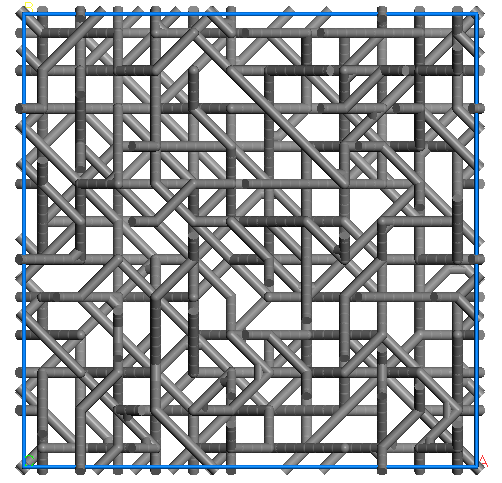|
|
LITR 5439 Literary & Historical Utopias
|
|
Haylie Unger
The Utopian Missing Link?
Imagine that society is composed of individuals operating not as one mechanized whole but as individual components from which society assumes its shape. To determine the best structure of a society, one must determine first what defines the best individual. Plato offers a description of the individual as a tri-partite soul while Freud describes the human as a combination of the id, ego, and superego. Each of the three parts of the human being, argue both Plato and Freud, must be in balance for healthy functioning. Consequently, a society, Utopian or otherwise, must protect all three parts of the individual to insure its own survival. This conclusion led me to wonder what part of the human component is often missing from Utopian societies. And is it this missing component that turns a Utopia into a Dystopia?
Because, as Plato maintains in his Republic, the connection between the individual and the polis are fundamentally bound, careful attention should be given to the components of the individual before a society can be viably created. According to Jonathan Lear in his essay entitled “Inside and Outside the Republic,” Plato notes that “the same forms . . . will be found in the polis and in the individual psyche . . . and the shape of the polis has to be understood as deriving from the shape of the psyche” (190-191). Naturally then, to exclude the individual from one part of his being (say for example the desiring part) would leave him unhealthy and unable to function optimally within society. As Plato describes it, the human soul is made up of three equally important parts: the spirited soul, the rational soul, and the appetitive soul (Philosophypages 1). In brief, one of each parts corresponds to Freud’s id, ego, and superego, although Plato’s three are not identical to Freud’s. All three parts must be present in the individual before he can productively engage in society.
Before comparing the three parts of Plato’s human soul to those of Freud’s human being, consider the connections Freud draws between the balanced human and society. According to sources on Wilderdom.com, Freud maintains that “all three components [id, ego, superego] need to be well-balanced in order to have good amount of psychological energy available and to have reasonable mental health” (1). Of course, a Utopian society derives its power from citizens one would hope embody this “reasonable mental health.” Consequently, it might be expected that the citizens of Utopia would need to have a balance of the id, ego, and superego to function successfully.
Now, to compare Plato’s and Freud’s interpretations of the three parts of the human being and see if Utopian literature represents individuals who embrace these components or not. Plato’s rational soul is similar to Freud’s superego; this part of our being pushes us toward perfection and controls our value system. The spirited soul Plato describes links to Freud’s ego, a component which balances the decisions of the rational soul/superego. Finally, the appetitive soul mirrors Freud’s id, which is the root of our desires and emotion-based thinking. This comparison is loose and certainly not perfectly fitted, but the links between each part are obviously undeniable. So, if the healthy individual needs a balance of three components, do the citizens of Utopian societies display all three components?
Utopian societies often seem to limit the expression
of individualism in their citizens. Ayn Rand in
Anthem suggests that Utopian citizens are not
allowed to experience the ego-self. On the final page of her novel,
To further this discussion concerning the missing components of a Utopian individual’s nature, it is interesting to note what we are not told about individuals in most Utopian societies. For example, In Bellamy’s Looking Backward Leete and West do not question the young male waiter regarding his own personal feelings about his place in Utopia. This lack of interaction suggests, perhaps more strongly than any other element, that the citizens of Utopian communities may have their id, and perhaps their ego as well, heavily controlled. Another such example is witnessed in the Garden of Eden in Genesis. In this Garden, Adam and Eve are allowed only one choice, whether or not to eat from the tree of good and evil. We may assume that their other interactions are more instinctual than choice-driven. Here, clearly, the id is limited to the greatest possible extent.
According to the views of Freud and Plato,
individuals must balance
the three parts of their soul to function viably in any society. It seems then
that a heavy focus in Utopian societies on the superego and rational self over
that of the ego or id may cause an imbalance in the society as a whole. This
would naturally lead to the decline of a Utopia into a Dystopian society. It
would be interesting to investigate the exact characteristics of the id, ego,
and superego more closely, and match these to the behaviors of individuals in
Utopian societies, thus allowing one to determine if all Utopias are missing the
same elements or not.
Works Cited
Lear, Jonathan. "Inside and Outside the "Republic""
Phronesis 37.2 (1992): 184-215.
Web.
Lear, Jonathan. "Plato's Politics of Narcissism."
Apeiron: Journal for Ancient Philosophy Science
26.3/4 (1993): 137-59. Web.
Mc Nulty, Tracy. "Demanding the
Impossible: Desire and Social Change." Differences: A Journal of Feminist
Cultural Studies 20.1 (2009): 1-39. Academic Search Complete. EBSCO.
Web.
http://wilderdom.com/personality/L8-4StructureMindIdEgoSuperego.html
http://www.philosophypages.com/hy/2g.htm


